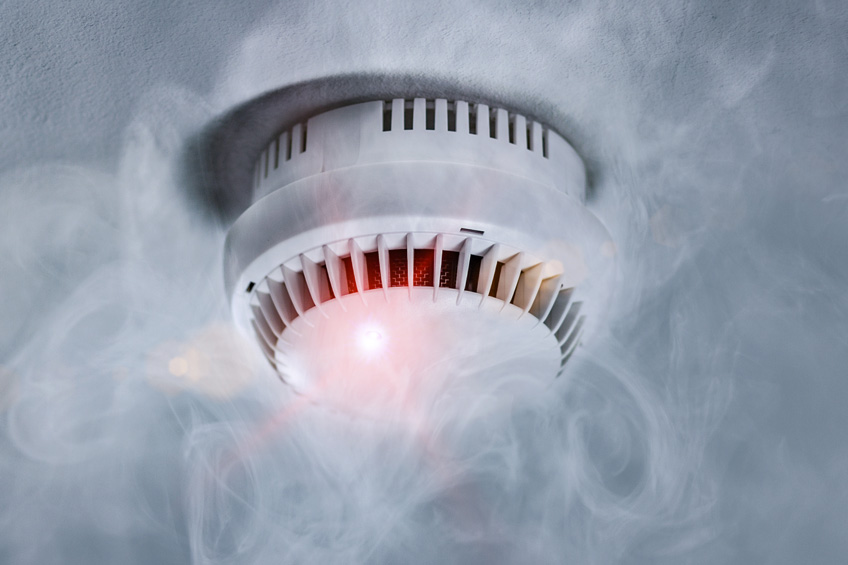As we button up our homes for winter, smoke and carbon monoxide detectors assume an even greater role in protecting property and loved ones from disaster.
Both battery-operated and hard-wired devices need to be tested monthly for proper operation and that’s a good time to assess whether you have the protection you need. Experts recommend smoke alarms outside every bedroom, in kitchens, basements, and garages. And every home with a fuel-burning furnace, dryer, water heater or other appliance should have at least one carbon monoxide alarm installed at least 15 feet from the fuel-burning appliance and away from windows, doors and areas where airflow is restricted.
But what is the best choice, battery-operated or hard-wired into your home’s electrical system?
Battery-operated alarms
Battery-powered alarms are the most popular and easiest to install, but they only work when the batteries are good. They should be tested monthly and batteries should be replaced annually. Sensors can wear out over time, so the units themselves should be replaced every ten years.
Most battery-operated alarms work independently, so they won’t trigger alarms in other parts of the house and may not connect to “smart” home systems. Check the manufacturer’s information to be sure you get the features you want.
Hard-wired alarms
Hard-wired alarms are connected to your home’s electrical system so they’re functioning as long as your home has power. Most also come with battery backup in the event of a power outage. Just like battery-operated alarms, they should be tested monthly and any batteries should be replaced on the schedule recommended by the manufacturer.
While new installation is usually not a DIY project, homes built after 1986 are required by law to have at least one hard-wired smoke alarm. Additions or replacements are connected to 120-volt household current and should only be serviced by qualified electrical personnel.
Because hard-wired detectors are connected to the home power, there’s no risk of batteries getting weak and taking longer to activate or sending out a weak alarm, saving potentially precious seconds in the event of a fire or other danger. The alarm signal will always be loud and quick to sound. Many are also interconnectable, sounding alerts on other units throughout the house, another potentially life-saving benefit.
Alarms connected to home security or “smart” systems are constantly drawing extra current, so with hard-wired systems you don’t need to be concerned with shortened battery life from the extra load.
Safety First…either way.
Whether you choose battery-powered or hard-wired, the important thing is to be sure that your home and family are as safe and secure as possible. That means top-notch electrical work, including updated safety systems, and Allstar Electrical Services delivers the quality results you expect and deserve. We work hand-in-hand with you or your contractors throughout our Front Range service area.to ensure your work is done right, on budget and on schedule.
Whatever your electrical needs, call Allstar Electrical at (303) 399-7420 or visit our website. Then use our handy on-line contacts to request an estimate or set up an appointment. We’ve served the Front Range for over 15 years and are top-rated by the BBB and Angie’s List.
Allstar also offers 24/7 radio-dispatched emergency service


